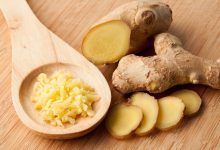
What are the benefits of cumin consumption?
Cumin is an aromatic plant and spice that we usually use in the kitchen to give a special touch to our dishes. Its strong flavor makes food taste different, and also has beneficial properties for health and that very few know. It belongs to the family Apiaceae, whose origin is in the basin of the Mediterranean; but at present, we find benefits of cumin in a large part of Europe, North Africa, and Latin America. It is a plant that has been used for centuries. For example, the Egyptians used it to prevent microbial attacks on mummies.
The benefits of cumin consumption
Cumin properties
Cumin contains moderate amounts of several micronutrients. It is rich in vitamins A, E, iron, phosphorus, magnesium, potassium, and calcium. In addition, it also has healthy fats (essential oils) and fiber.
For centuries it has been used as a tool of natural medicine, so its intake gives us properties such as:
- Improves digestion. Cumin has carminative properties (reduces gas generation), helps in digestion and stimulates appetite.
- Reduce sugar levels. Some supplements contain cumin to help reduce blood sugar levels.
- It is diuretic. Its phytotherapeutic compounds stimulate the function of the kidney.
- It brings relaxation. Cumin has some sedative substances that promote relaxation, improve the quality of sleep and alleviate disorders related to the nervous system.
- Galactose. Increase the production of breast milk during breastfeeding.
- It contains antioxidants. It has some substances with an antioxidant action that help prevent cancer and cell aging.
Benefits it brings to health
Knowing the number of healthy properties it has, the benefits it causes in our body are:
- It decreases the risk of suffering from diabetes and hypoglycemia.
- It improves the symptoms of flu, bronchitis, catarrh, cough, etc.
- Reduces heartburn, stomach ulcers, lack of appetite, heavy digestion, flatulence …
- A migraine, insomnia, stress, anxiety
- Reduces the affections of the mouth, cavities, halitosis, gingivitis, wounds, herpes, etc.
- It helps in reducing fluid retention.
- It improves the cases of anemia, migraine. stress, insomnia, and osteoporosis.
How to drink or use cumin?
- Infusion with seeds. Put the water to heat. When it boils, remove it from the heat and add half a teaspoon of cumin seeds. Let stand about 5 minutes and take it after eating.
- In the kitchen. To improve the flavor of the dishes, you can directly use the seeds (in small quantities) or powder. If you want to further enhance the taste, try to toast the seeds.
- Cumin essential oil. The essential oil is indicated for colds, flu, and respiratory system problems. You can heat water in a pot, add a couple of drops of cumin essential oil and make the mist. It can also be applied directly on the skin in an infection, blow or wound.
- With compress. Make an infusion loaded with cumin and use the liquid to wet a cloth. Apply it in the infected area or with pain.
- Poultice. To make a poultice of cumin and clay, mix a tablespoon of white clay with the water of a cumin infusion until you get a creamy texture. Then, put it in the painful area and let it act for about 20 minutes.
Are there any contraindications?
Like any other food, cumin in moderate amounts does not present any problem of toxicity. Even so, you should keep in mind some precautions:
- Cumin oil is not recommended in pregnant women and children under 6 years of age.
- It is not recommended to take in case of allergy, heavy menstruation or if taking hypoglycemic drugs. Check with your doctor first.











